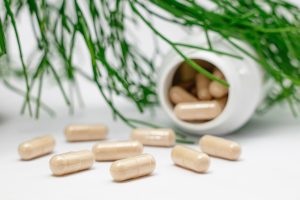 It used to be easier when you looked for supplements. There were a few protein supplements, bottles of multivitamins, and some individual vitamins. Today, there are fiber bars, Elderberry gummies, and a vast array of protein supplements containing extra nutrients, including dried fruits and vegetables. It’s become a million-dollar business. Sometimes, the supplement is a waste and flushes out of your body. People with adequate vitamin C expel excess vitamin C in urine. Some vitamins or macronutrients are dangerous in large doses. Taking supplements may help or come with problems.
It used to be easier when you looked for supplements. There were a few protein supplements, bottles of multivitamins, and some individual vitamins. Today, there are fiber bars, Elderberry gummies, and a vast array of protein supplements containing extra nutrients, including dried fruits and vegetables. It’s become a million-dollar business. Sometimes, the supplement is a waste and flushes out of your body. People with adequate vitamin C expel excess vitamin C in urine. Some vitamins or macronutrients are dangerous in large doses. Taking supplements may help or come with problems.
The body can’t use some forms of supplements.
When using vitamins or minerals, bioavailability is a factor. In some omega-3 supplements, like krill oil, the omega-3 is more bioavailable than it is from certain fish oil supplements. Collagen supplements require the body to break it down for use. As people age, their ability to break down and absorb nutrients diminishes. It’s one place where supplementation can be helpful. For those people, easily absorbed supplements are necessary to get the benefits desired.
Studies show that consuming a healthy diet is far better than taking supplements.
While there are many contradictory studies, most find that supplements for the average person aren’t as beneficial as a healthy diet. They also show that people consuming a healthy diet don’t require supplements. One study found that people taking supplements were healthier. When scientists broke the data down into other categories, like a well-balanced diet, regular exercise, and adequate sleep, taking the supplements made little difference. The new conclusion changed from supplements improve longer=gevity to people who live healthy lives often take supplements.
Protein supplements are popular with bodybuilders and seniors.
That’s quite a diverse group of people using protein supplements. In many cases, bodybuilders take them to build muscles faster. Seniors often take these supplements to maintain muscle mass. It increases protein in the diet and ensures more is absorbed. Another area of supplements that are growing are dehydrated fruit and vegetable capsules. The nutrients are bioavailable and shown to enter the bloodstream when studied. Besides fruits and vegetables, some capsules contain probiotics and others contain herbs. These may be beneficial, but no supplement can replace a healthy diet.
- Supplements may be helpful for seniors in several ways. Many seniors have diminished appetite, often due to lack of exercise. They may also have dental issues that prevent consuming certain foods. Supplements may offer a good option for filling the nutrition gap.
- Opting for whole food, whether fresh, frozen, or dehydrated, delivers both micronutrients and phytonutrients to the body. Blueberries, for instance, have anticancer properties from the anthocyanin. Taken alone, anthocyanin didn’t have the same effect and required the synergy of other nutrients.
- If you’re deficient in vitamin D, it’s difficult to get from food. Getting sun exposure may not be enough, particularly for people living in the north. Supplementing with vitamin D is beneficial.
- More is not always better. You can consume too many vitamins A, D, E, and K. These are fat-soluble vitamins that don’t flush out of the body when there is excess. Too much protein can be hard on the kidneys.
For more information, contact us today at Rising Fitness Gym
